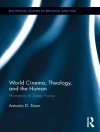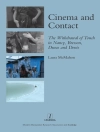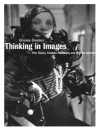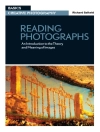This collection explores the emergence of new spatialities and subjectivities in Brazilian films produced from the 1990s onwards, a period that became known as the retomada, but especially in the cinema of the new millennium. The chapters take spatiality as a powerful tool that can reveal aesthetic, political, social, and historical meanings of the cinematographic image instead of considering space as just a formal element of a film. From the rich cross-fertilization of different theories and disciplines, this edited collection engages with the connection between space and subjectivity in Brazilian cinema while raising new questions concerning spatiality and subjectivity in cinema and providing new models and tools for film analysis.
Содержание
Chapter 1: Introduction.- Chapter 2: Tikmũ’ũn’s Caterpillar-Cinema: Off-screen Space and Cosmopolitics in Amerindian Films.- Chapter 3: The Reterritorializations of Urban Space in Brazilian Cinema.- Chapter 4: Mapping from the Margins: The Films of Beto Brant.- Chapter 5: Bodies in Landscape: The Scientist’s Presence in Viajo porque preciso, volto porque te amo and Ventos de agosto.- Chapter 6: Intensive Spatium and the Construction of Child Subjectivities in Brazilian Cinema.- Chapter 7: Insolação: Subjective Perception of an Urban Utopia through the Lens of Love and Loss.- Chapter 8: Astral Cities, New Selves: Utopian Subjectivities in Nosso Lar and Branco sai, preto fica.- Chapter 9: Underneath the Surface, Embodied on Screen: Memory and Social Conflict in São Paulo’s Cityscape.- Chapter 10: The Space of Queer Masculinities in Karim Aïnouz’s Praia do Futuro.- Chapter 11: Water and Queer Intimacy.- Chapter 12: ‘Casa grande & senzala’: Domestic Space and Class Conflict in Casa grande and Que horas ela volta?.- Chapter 13: O som ao redor: Aural Space, Surveillance, and Class Struggle.
Об авторе
Antônio Márcio da Silva currently teaches at the University of Surrey, UK. His publications include The “Femme” Fatale in Brazilian Cinema: Challenging Hollywood Norms (Palgrave 2014), contributions to the edited collections Directory of World Cinema: Brazil and World Film Locations: São Paulo and a number of articles.
Mariana Cunha is a Postdoctoral Research Fellow at the Federal University of Rio Grande do Norte, Brazil, where she is currently developing a research project on the relationship between landscape and embodiment in contemporary world cinema. She has taught Brazilian studies at Queen Mary University of London and the University of Oxford, UK.












